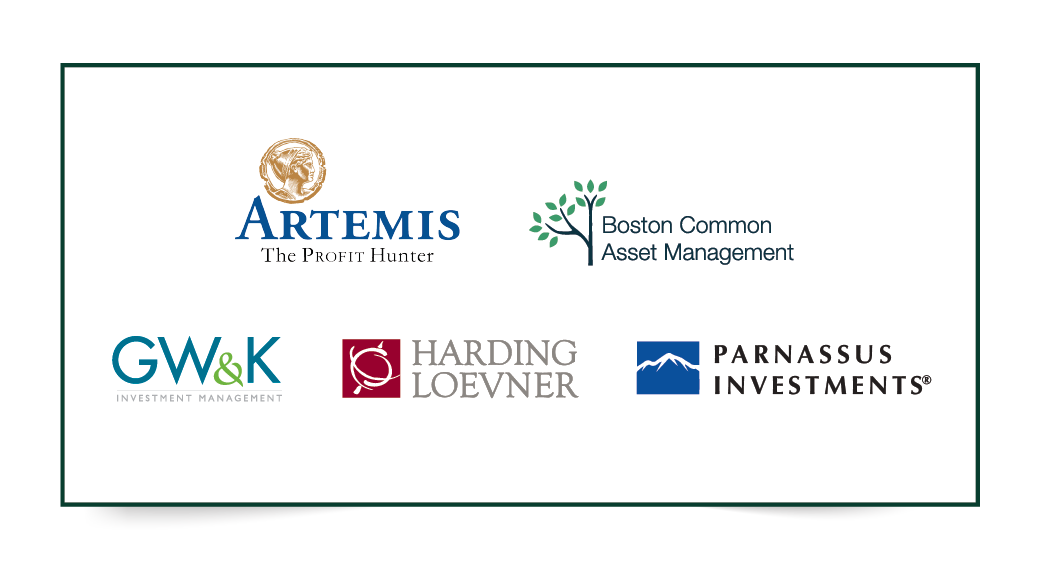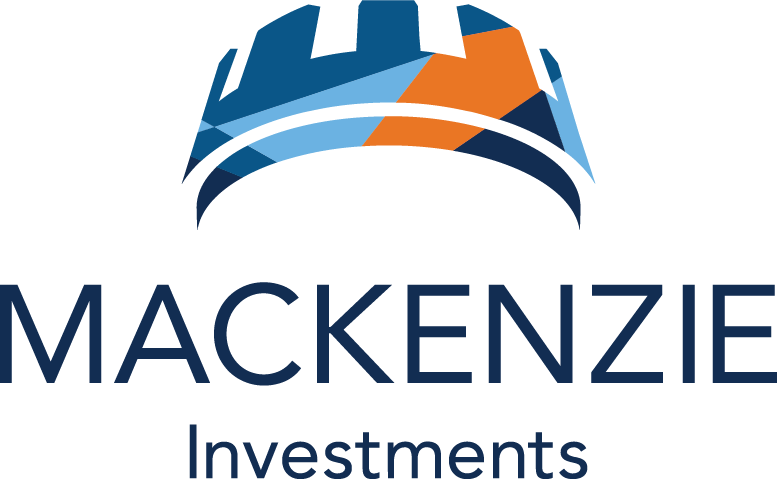
September 2021
ESG NEWS IN COLLABORATION with
Here are the top news, stories, observations and other interesting things that we hear about in the market, with relevance for selection teams and sustainable investing.
#1 Investors Continue to See ESG Outperformance
According to a survey conducted by The Economist Intelligence Unit (EIU) and commissioned by UBS, ESG tops the agenda for global institutional investors. The new study “Resetting the agenda – How ESG is shaping our future” finds that 74% of respondents agree that their ESG-integrated investments had better financial performance than their equivalent traditional investments in the three years prior to 2020. The survey respondents include 450 investors from North America, Europe and Asia-Pacific working in asset and wealth management firms, corporate pension funds, endowment funds, family offices, government agencies, hedge funds, insurance companies, pension funds, sovereign wealth funds and reinsurers.
North American investors appear to be ahead of their counterparts in other regions in terms of ESG integration, with 41% of them reporting to have at least 50% of their assets under management currently integrating ESG criteria, compared with a quarter in Asia-Pacific and just 18% in Europe.
Read the full article here (source: NordSIP)
#2 Investing in Change (NordSIP virtual round table)
For many, responsible investing is about avoiding certain companies, be it for ethical reasons, reputation management or risk mitigation. With the fast integration of ESG in the investment process and increasing investor engagement, there is a growing awareness that transitioning companies can and need to be a part of the solution. Moving from exclusion to transition can be tricky, however. Change needs to be appropriately identified, managed, and measured, from idea generation to divestment.
To better understand what it takes to successfully invest in transitioning companies at every stage of the investment process, NordSIP organised a webinar on August 26th. The event brought together Kristofer Dreiman, Head of Responsible Investments at Länsförsäkringar (LF), Johan Florén, Head of Communications and ESG at AP7, Andrew Parry, Head of Sustainable Investment at Newton Investment Management, and Thomas Miedema, Investment Manager at Walter Scott. Newton and Walter Scott are part of BNY Mellon Investment Management.
Read the full article and access the recorded webinar here (source: NordSIP)
#3 Asset Managers Find Greenwashing ‘Blind Spots’ in EU Rules
As Europe rewrites the rules of investing to protect the planet from climate change, asset managers say they’re seeing differences in how those edicts are being interpreted. Since March, money managers in Europe have had to adapt to the Sustainable Finance Disclosure Regulation. Designed to fight greenwashing by forcing a uniform set of reporting standards, SFDR is more ambitious than anything agreed elsewhere in the world. But a Bloomberg survey of some 20 major European banks and asset managers suggests the regulation leaves too much room for guess work. That means that despite vast piles of cash moving into environmental, social and governance investing, efforts to steer capital away from carbon emitters may ultimately fall short.
Baard Bringedal, chief investment officer at Storebrand Asset Management, says managers still have to deal with “many uncertainties and blind spots” when trying to allocate cash. “As an anti-greenwashing regulation,” the SFDR was an important step, he said. “But it does not come without its limitations.”
The full article can be found here (source: Bloomberg)
#4 U.N.’s Latest Climate Report Turns up Heat on Investors
The United Nations’ latest scientific report on global warming presented a stark climate-change challenge for everyone, including pension fund officials, investment managers, politicians and policymakers: do more, and do it faster. The Aug. 9 update from the U.N. Intergovernmental Panel on Climate Change’s scientific working group is not just any report. The last one, issued in 2014, provided the scientific underpinning of the Paris Agreement, the landmark pact among nations committed to controlling global warming. This latest report, approved by 195 member states, warned that there is less than 20 years left to make meaningful change before the pace of global warming increases. That puts pressure on countries to do more before November’s U.N. Climate Change Conference in Glasgow, known as COP26.
Institutional investors are also heeding the warning. The report’s call to reach net-zero greenhouse gas emissions by 2040 “is really sobering. The global community is going to try,” said Liz Gordon, executive director of corporate governance for the $254.8 billion New York State Common Retirement Fund, Albany. The pension fund’s ambitious climate action plan to reach net-zero greenhouse gas emissions by 2040 includes committing $20 billion to sustainable investments and setting minimum standards for the companies it holds.
The full article can be found here (source: Pensions & Investments)
#5 Many climate funds fall short of Paris Agreement goals
More than half of climate-themed funds do not align with the goals of the Paris Agreement, according to an analysis released Friday by InfluenceMap, a global climate-risk think tank. The research analyzed 723 funds with a collective $330 billion in assets under management. Of those, 593 were considered broad ESG funds and 130 classified as climate-themed, based on how they were marketed and keywords in the name, such as low carbon, fossil-fuel-free or green energy. A score of zero represents alignment with the Paris Agreement goal of limiting global warming to at least 1.75 degrees Celsius, while a negative percentage indicates that a portfolio is overweight in companies whose production plans negatively diverge from climate scenarios in the coal mining, oil and gas, power, and automotive sectors. Of the 130 climate-themed funds, 72 had a negative score, while funds scoring better had at least a 50% chance of reaching the Paris Agreement goal.
Still, climate-themed funds scored better than the broad ESG funds on Paris Agreement alignment, with an average score of -6%, compared with the zero average by climate-themed funds. One-third of the 130 climate funds scored between -10% and -20% and were typical funds passively tracking market indexes while screening for things such as fossil-fuel companies. Such funds “appear to provide limited climate benefit from a portfolio standpoint compared with the broader market,” the report said. It also found that funds marketed as “fossil fuel restricted” often retained holdings in oil and gas value chain companies such as refiners, while some passive funds underweighted instead of excluded climate-negative sectors. Climate-themed funds marketed as clean energy outperformed the rest, while the four funds promoting themselves as “Paris aligned” were among the most misaligned on average, the report said.
The full article can be found here (source: Pensions & Investments)
#6 Asset owners moving to full ESG and thematic impact strategies
Most institutional asset owners are moving toward fully integrating ESG into their investment processes and more of them have thematic strategies for making an impact on specific issues, like climate change or the environment, according to a report released Tuesday by Coalition Greenwich and AGF Investments. Analytics provider Coalition Greenwich conducted 151 telephone and online interviews with corporate and public pension funds, endowments and foundations in North America and Europe that are participating in an ongoing Coalition Greenwich study.
A 2016 study found that half of asset owners had incorporated some element of sustainability into their investment processes. Five years later, the share is now 72%. By 2026, nearly 8 in 10 institutions expect to have adopted sustainability criteria into investment decision-making processes, and 65% anticipate actively implementing sustainable investing, according to the report. About two-thirds of institutional investors participating in the study said that in the past three years, they have increased their use of sustainable thematic investment strategies focusing on one or more areas, with potential for both attractive investment returns and positive impact.
“Institutions are increasing allocations to sustainable thematic investment strategies because many asset owners believe they can generate greater impact than ESG integration approaches while acting as a source of alpha by identifying investment trends earlier than other approaches,” said Davis Walmsley, head of client relationships at Coalition Greenwich and author of the report, Targeting Impact: Integrated ESG and the Role of Thematic Strategies in Asset-Owner Portfolios, in a news release.
The full article can be found here (source: Pensions & Investments)



















